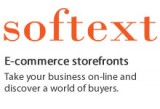Cellphone companies do the former. Airlines do the latter. Hotels sometimes do both. What’s the best choice for your business?
Should you offer your best prices to new customers (to lure them in) or existing ones (to reward their loyalty)?
To help executives end this eternal pricing debate, two professors at the Yale School of Management developed a decision-making framework. To use it effectively, Jiwoong Shin and K. Sudhir explain in the MIT Sloan Management Review, business leaders must answer two questions about their customers:
How much shopping flexibility do customers have?
In other words, how easy is it for your customers to shop elsewhere? “A customer may generally prefer a Lowe’s store for home-improvement products because it is closer to her home and, in her opinion, offers superior quality offerings,” write Sudhir and Shin. “However, she may still prefer to go to the Home Depot on the drive home from the office because it is more convenient to her route. We define this fluidity of customer preferences as shopping flexibility.
“This flexibility is not restricted to store choice and geographic location. Consider a college student who lives in New York. He generally prefers American Airlines because he likes its service and it flies a direct route to his hometown. However, when he needs to visit a friend in Houston, he may prefer United Airlines because it has more direct flights for that route.”
What’s a situation with low flexibility? Consider something like a two-year cell phone contract, where the company knows a customer cannot leave for a given period of time.
Which customers contribute most to our profitability?
If your business is like most, a small percentage of your customers accounts for a large amount of your overall profit margin. It’s a classic version of the 80/20 rule. “An American Express executive, for example, once reported that the best customers outspent others by 16 to 1 in retailing, 13 to 1 in restaurants, 12 to 1 in airlines, and 5 to 1 in hotel/motels,” note Sudhir and Shin, who define these imbalances as value concentration. If an 80/20-type rule applies to your business, and a tier of your “best” customers outspends other customers by a significant multiple, then your business has ahigh concentration in customer value. If your businesses is one where most customers are created equal or close to equal (that is, there’s not a top tier of big spenders who contribute disproportionately to your overall margins), then your business has a low concentration in customer value.
Now that we’ve explained all that, here’s the framework:
Sudhir and Shin spell it out: “In markets that have a high degree of both flexibility and value concentration, companies should focus on rewarding their own customers -; in particular, their best customers. If either of these characteristics is not in place -; that is, either the value concentration is low, shopping flexibility is low, or both are low -; then managers should focus on rewarding new customers or those drawn from the competition.”
One type of business that rewards current customers is retail stores, “which typically are characterized by high degrees of both shopping flexibility and value concentration,” the professors note. “In retail, for example, different people spend vastly different amounts on clothes and can switch from store to store at the drop of a hat. As per our framework, with both conditions (a high degree of shopping flexibility and a high degree of value creation) met, retailers should reward and focus on retaining existing customers by providing discount value catalogs or membership club cards to frequent, high-value shoppers. When there is a high degree of value concentration, it is important to retain those high-value customers; otherwise, you are endangering profitability.”
These conditions also exist in the rental car and airline industries, where it’s easy for customers to go elsewhere (high flexibility) and a tier of top customers outspend the rest (high value concentration).
It’s something to keep in mind when developing and assessing customer loyalty programs. Often when companies say they’re rewarding their best consumers, they’re really just acknowledging that these consumers have plenty of other options.
Related articles
Prices Going Up? How to Tell Your Customers
Do You Even Have a Pricing Strategy?
How to Win a Price War
![]() Source: Inc. Magazine
Source: Inc. Magazine


